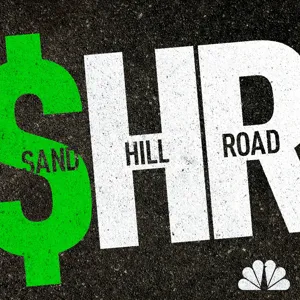Podcast Summary
Retail Investors Fueled SPAC Boom During Pandemic: Retail investors drove the surge in SPAC popularity during the pandemic, with institutional investors following suit. SPACs, which target attractive but not always profitable companies, made bold projections, fueling excitement for potential huge returns.
The popularity of Special Purpose Acquisition Companies (SPACs) surged during the pandemic due to a retail investor boom. With people spending more time at home and looking for new investments, they turned to SPACs, which often targeted attractive, though not always profitable, companies. These companies could make bold, optimistic projections in their presentations, fueling excitement and a sense of potential for huge returns among retail investors. Institutional investors also jumped on the trend. However, this investment boom may not last as regulations and market conditions evolve.
The Rise of SPACs: A Faster Way for Companies to Go Public: SPACs allow companies to bypass traditional IPOs, leading to quicker market entry and massive valuations, but rapid growth and lack of due diligence raise concerns.
SPACs, or Special Purpose Acquisition Companies, have become a major phenomenon in the financial world, allowing companies to go public in a faster and more direct way than through traditional IPOs. Smart money investors were among those who jumped on board early, leading to massive valuations for some companies, like Nikola, which had yet to produce anything but a grand promise. The process involves the SPAC raising funds and then searching for a company to merge with, often with the help of big investment banks. However, during the peak of the SPAC boom, deals were being made in as little as two months, raising concerns about due diligence and potential risks. While not inherently shady, the rapid growth and involvement of retail investors has led to increased scrutiny and skepticism.
The SEC's intervention in the SPAC market: The SEC's guidance on warrant filings slowed down the issuance of new SPACs and marked the beginning of the end of the SPAC boom, as regulatory action and the economic environment combined to dampen interest.
The popularity of Special Purpose Acquisition Companies (SPACs) exploded during the pandemic, with hundreds of new SPACs entering the market and contributing to a significant portion of US mergers and acquisitions. However, the lack of regulatory oversight and the hype surrounding celebrity-backed SPACs led to significant risks for retail investors. The Securities Exchange Commission (SEC) eventually stepped in and issued guidance on warrant filings, slowing down the issuance of new SPACs and potentially marking the beginning of the end of the SPAC boom. Ultimately, the combination of regulatory action and the economic environment, including the prospect of rising interest rates, contributed to the decline of the SPAC market.
SEC scrutiny slows down SPAC market: The SEC's increased focus on SPACs led to uncertainty and hesitation among investors, causing a significant decrease in the number of SPACs trading above $10 and indicating a market in decline.
The SEC's increased scrutiny and regulatory challenges significantly slowed down the SPAC market in 2021. The SEC's concerns about rosy projections and accountability led to a back-and-forth between regulators and SPACs, causing uncertainty and hesitation among investors. This uncertainty, combined with the decline in SPAC performance and the resurgence of interest in Bitcoin and crypto, led to a significant decrease in the number of SPACs trading above the crucial $10 price. By the end of 2021, over 65% of SPACs that had gone public since January 2020 were trading below $10, indicating a market in decline. Currently, the SPAC market is experiencing a downturn, and it remains to be seen how it will recover.
SPAC Market Downturn: Factors and Winners: The SPAC market is experiencing a downturn with 90% of deals trading below $10 due to investor disinterest, excesses of 2021, inflation, war in Ukraine, interest rates, SEC proposals, and institutional losses. However, SPAC sponsors are the biggest winners, earning a 20% stake regardless of performance.
The SPAC market has experienced a significant downturn, with approximately 90% of deals trading below $10 due to investor disinterest. Factors contributing to this shift include excesses of 2021, rising inflation, a war in Ukraine, and increasing interest rates. Additionally, the SEC is proposing to hold banks liable for statements made by companies going public through SPACs, leading many banks to withdraw from the market. Institutional investors, who traditionally financed these deals and bought in at $10, have also experienced losses. However, SPAC sponsors have emerged as the biggest winners, earning a 20% stake in the shell company for a nominal fee, regardless of the target company's performance. Despite the challenges, sponsors continued to launch multiple SPACs due to the potential for substantial profits.
SPAC market returning to pre-boom state: The SPAC market is expected to return to its pre-boom state, with big revenue-generating companies opting for IPOs and SPACs remaining for high-growth companies in need of cash. Despite a tarnished reputation, they are not expected to disappear entirely.
The SPAC market, which saw a significant boom in 2020 and 2021 with many companies going public through this route, is likely to return to its pre-boom state. The primary beneficiaries of the SPAC craze were bankers and advisers who charged hefty fees for their services, but had no skin in the game when it came to the success of the end companies. Hortense, a market expert, believes that big, revenue-generating companies with famous names are unlikely to opt for a SPAC listing over an IPO. Instead, SPACs are expected to remain an avenue for high-growth companies in need of cash. The reputation of SPACs, which has taken a hit due to the association with questionable companies and the lack of regulatory oversight, is not likely to improve soon. However, they are not expected to disappear entirely.






